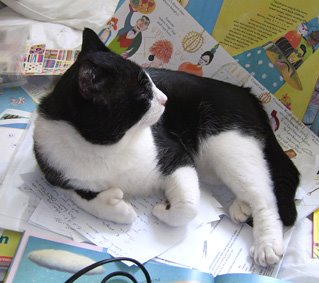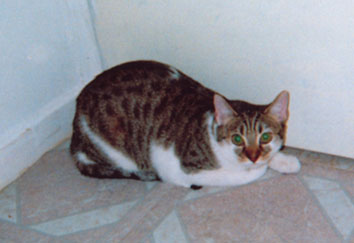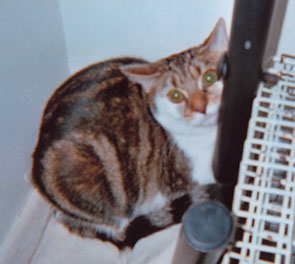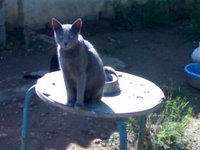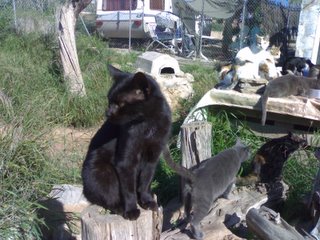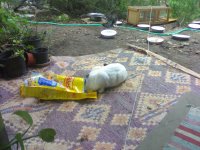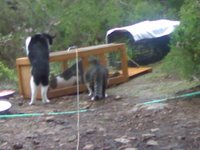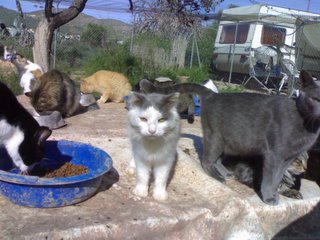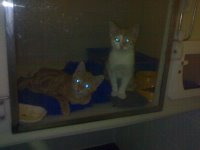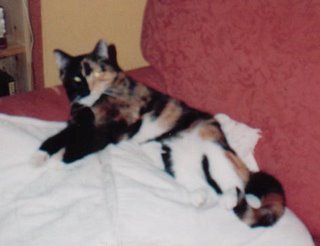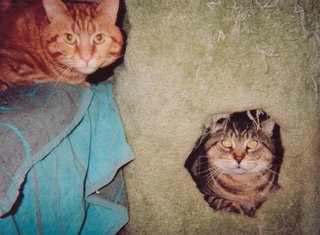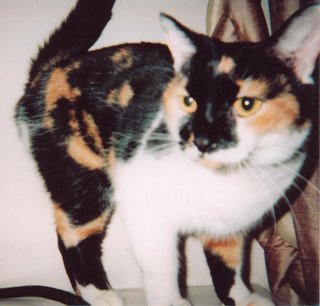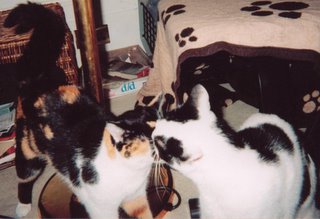Do feral kittens make good pets? - Cat World article
A survey tracked a group of rescued kittens for a year and came up with some surprising results
Believe it or not, rescued feral kittens can actually turn out to be more loving and affectionate than your average rescued domestic moggie.Work emerging from the charity Cats Protection is showing that if feral kittens are socialised from an early enough age, they can generally become calm and content enough to be relocated successfully to a normal home environment.When 70 rescued feral kittens were studied during their first year of life, the surprising result was that, at one-year-old, they were mostly happy to be handled, purred more and were generally quieter than their domestic counterparts.
Rewarding pets
The study showing rescued ferals can make rewarding pets was conducted by Dr John Bradshaw, director of the Anthrozoology Institute (Azi) at Southampton University and Sarah Lowe, Azi manager. They looked at an affluent area of Southampton and found less than four per cent of cats there able to reproduce - evidence neutering was being increasingly accepted as the best way to prevent unwanted kittens. A survey of Cats Protection branches and shelters by the Azi team indicated, however, that rescuing feral kittens is still an important area of work for the charity. In fact between 22 and 45 per cent of Cats Protection's rescued kittens were feral and Dr Bradshaw thought it likely the demand for kittens in areas where there were less domestic ones was being met increasingly by kittens of feral origin, after rescue and socialisation. Little or nothing was known about the suitability of feral kittens as pets long-term, so Dr Bradshaw's team set out to see how such a kitten's environment affects its adult behaviour towards its owner.
Ease of handling
A hundred feral kittens rescued by Cats Protection shelters and branches and other animal rescue organisations were tested for ease of handling and readiness to play during the fostering period of seven to 13 weeks. Seventy of these, all from Cats Protection, were tested again at six and 12 months old, after rehoming. Thirty-five kittens of domestic origin, rescued by the same Cats Protection branches and shelters as the feral kittens, were also tested for comparison.
The results were:·
During fostering, feral kittens rescued after six weeks of age were unlikely to purr when handled. Many rescued at eight weeks plus were difficult to handle at all, except when they had been in contact with people before rescue.
By 12 months, feral kittens difficult to handle and/or reluctant to play with a toy tended to be the ones rescued after seven weeks old. Those socialised intermittently during fostering, perhaps in an outdoor pen, were more reluctant to play with an object presented by an unfamiliar person, compared with those socialised continuously, in a cage in the fosterer's kitchen for example.
There was an immediate improvement in ease of handling and readiness to play, following socialisation by more than one person during fostering. By six or 12 months, this effect was no longer apparent.
At 12 months old, 18 per cent of the feral kittens were still difficult to handle and were rated as less than 'very satisfactory' by their owners. The owners of the remaining 82 per cent, the friendly feral kittens, found them equally satisfactory as pets as did the owners of the rescued domestic kittens, at one year old.
The friendly feral kittens gave some indications they were more attached to their owners at one year of age than the rescued domestic kittens. When handled they were more likely to purr, made fewer escape attempts and were generally less active than the domestic kittens.
Undesirable behaviour at one-year-old, like scratching furniture, aggression towards other cats and fearfulness, was unaffected by whether a kitten had originally been feral or domestic, though toileting problems were slightly more common in ferals.
Good socialisation
The study concluded that feral kittens, if rescued before seven weeks of age, are very likely to become satisfactory pets. It recommended continuous socialisation by more then one person to become 'best practice', if possible, for fostering, both for the kitten's welfare and to ensure it satisfies its new owner's expectations.
Results also showed it was important to consider whether rescue and rehoming into a domestic environment is likely to be in the best interests of feral kittens aged seven weeks or more. So far as adult feral cats are concerned, Cats Protection recommends they are trapped, neutered and returned to their natural habitat, because it is recognised they cannot easily be rehomed in a domestic environment. In order to alleviate the unnecessary destruction of feral cats and to enable them to remain feral, several Cats Protection shelters and branches have successfully rehomed some ferals to farms and stables. This initiative aims to allow feral cats to thrive in the right environment, as well as keep the rodent population under control.
Cat World Article Archive


